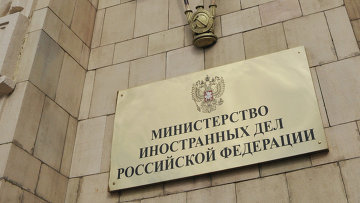MOSCOW, January 10 - RAPSI. The adoption agreement with the United States is no longer in effect and attempts to misrepresent Moscow's position on the issue are unacceptable, reads a comment posted by the Foreign Ministry on its website.
During a briefing on January 8, U.S. Department of State Spokesperson Victoria Nuland said that Russia had informed the United States of its intention to suspend the bilateral adoption agreement.
"On January 1, the Foreign Ministry officially granted the U.S. Embassy in Moscow a notification on the cessation, rather than suspension, of the aforementioned agreement due to the commencement of the Federal Law "On Measures to Affect Individuals Involved in Violation of Fundamental Human Rights and Freedoms, Rights and Freedoms of Russians," the comment reads.
"Any other interpretations, or attempts to misrepresent the nature of our position are unacceptable. We have ended the aforementioned agreement," the Foreign Ministry reported.
The Federation Council ratified a treaty on Russia-United States cooperation over adoption after lengthy negotiations in June 2012.
Work on the treaty began after a number of incidents occurred involving Russian-born children adopted by U.S. families, including news of an American foster mother sending her seven-year-old adopted son back to Russia alone on a plane with a "refusal note" in spring 2010.
The document was signed by both parties in Washington on July 13, 2011. The treaty outlined the adoption procedure and the monitoring process of foster children's living conditions and education.
But on January 1 2013 the Dima Yakovlev law banning the adoption of Russian children by American citizens came into force.
It was passed in retaliation for the U.S. Magnitsky Act, which stipulates visa sanctions for Russians who are believed by the senate members to have been involved in human rights violations.
The ruling United Russia party members said that the bill commemorates all Russian children who died or suffered as a result of negligence on the part of their U.S. foster parents.



